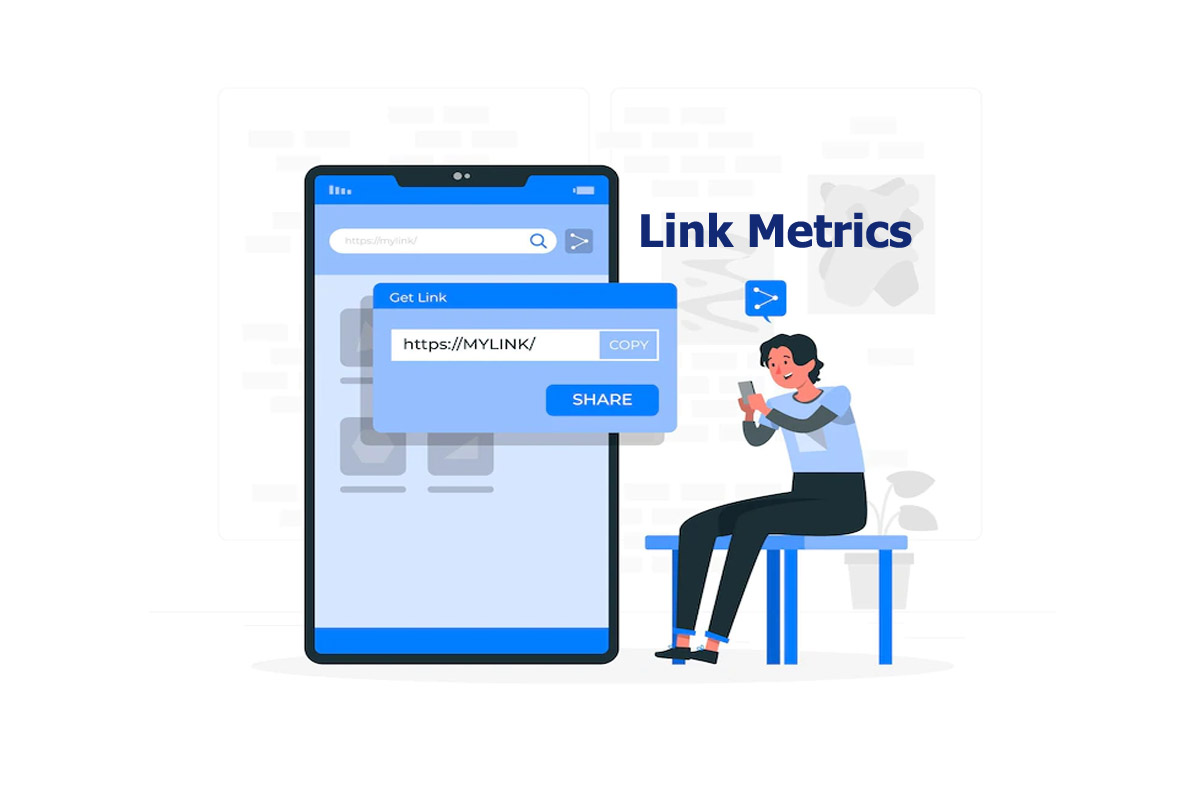Link Metrics
Introduction
Link metrics is the term that refers to the criteria for ranking search results. They show the position of any web page on the world wide web and include some measures of domain authority, trust and relevancy. It is a process of measuring websites not by how their web admins say them but by how relevant, authoritative and trustworthy they are.
Different search engines like google, bing determine any page ranking by various factors, but one of the significant factors is linking (Outbound or backlinks). So it is like an endorsement or vote when you get a link from another website. So this SEO thing is like a cycle. It goes back to where we started.
Didn’t you get us? It means the more backlinks, the more authoritative and relevant the website looks. And the chances of ranking at the top of the search engine results page (SERP).
In this article, we will walk through some of the significant factors of link metrics and how they are helpful. Let us quickly look at them.
PageRank – Link Metrics
Page rank is one example of link metrics. This was launched by google as a critical factor of content quality. PageRank will rank any page with scores from 1-10 depending on how many inbound links are given on the page and how strong the links are.
Now you may be thinking, how does this work? So basically, when you link a page with another website or link different pages from your website (internal links), you get the ranking points from that shared link on your page. This whole scenario is called “Link Juice” or “Link Equity”. So the more link juice you have, the higher PageRank is.
Authority Ranking Factor – Link Metrics
People only look for that things that are verified or authorized. Like they watch the news on official channels. The same goes for online content. It should be approved.
Now, this is important for link metrics too. And also, the site should be authoritative that is passing the link. Google bestow outbound links from high authority sites with more ranking position than they do for links from low authority sites.
It would help if you remembered that Google prefers linking between sites in similar fields or businesses rather than different businesses. Therefore, this inter-field linking is considered as highly authorized by Google.
Relevant Ranking Factors
All search engines will analyze the following factors before deciding on the website’s relevancy. This goes for both websites passing the link and receiving the link:
Domain to Page:
If you are linking your domain to a page, it should have the same theme as yours. If it is different, then there are chances that it can look manipulative to search engines. And it won’t make appropriate sense.
For example, you link the skincare website domain to the food page. Does it make sense to you? No right! Exactly. But suppose you do this for food for glowing skin. That will make sense and can be relevant.
Domain to Domain:
What is the field of the linking site? Does it is related to you? One of the essential things google considers relevant is linking the sites with similar content. As we have seen in the example above, this goes the same.
Trust Ranking Factors – Link Metrics
Trust is one of the most disputable factors in SEO. Yes, it is essential, but this importance keeps fluctuating. Let us see how:
Search engines like Google have a list of websites that they consider as trustworthy, which depends on link metrics. This means you are linking should from an authorized website. Then your website will rank at the top.
Your website is highly trustworthy if you are linked with highly trusted websites. But if your website is linked to a trustworthy site, but they are not linked to one that is not trustworthy, then this will affect your site.
‘NoFollow’ Attributes
Since we all know the value of a link, people are taking unfair advantage of it. Like paid links, three ways link or excessive reciprocal. For stuff like this, google recommends you NoFollow attribute to a page or anchor text which will tell the search engine to ignore the link.
When we talk about SEO, the nofollow attribute is worthless. Still, it is helpful against paid links that will destroy your page relevancy or trust, especially to avoid ranking penalties…

